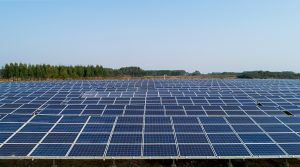The Philippines and Australia can deepen bilateral relations and business ties by collaborating in the development of renewable energy to drive economic growth in their respective countries. Both nations are endowed with renewable energy resources and are well-placed to benefit from the energy transition.
Australia is installing solar and wind generation capacity at the fastest per capita rate of any developed nation. Meanwhile, the Philippines ranks second for combined solar and wind power generation in Southeast Asia, with 1,766 megawatts (MW) of installed capacity and is on track to be the largest green power generator in the region by 2030. However, both countries need partners to ensure they capitalize on this once-in-a-generation opportunity.
The Philippines is widely considered an emerging economic powerhouse in Southeast Asia. The nation’s economy grew 7.6 percent in 2022 and is forecast to become a $1 trillion dollar economy by 2030. The Philippines has an estimated 246,000 megawatts (MW) of untapped renewable energy and has an aggressive government-led National Renewable Energy Plan, which aims to reach 35 percent renewable generation by 2030 and 50 percent by 2040.
Currently, there is very little collaboration between Australia and the Philippines in the energy space. Collaboration in the renewable energy industry will lay the groundwork for the further development of the bilateral relationship and open new opportunities for businesses in both countries.
The existence of Australian businesses in the Philippines is not new; there are over 300 companies in the market. However, Australian businesses have long concentrated on outsourcing business processes to the Philippines. Instead, Australian companies should engage the youthful and English-speaking Filipino workforce to establish businesses in the renewable energy space.
The Philippines’ much-improved economic growth performance, and the liberalization of its renewable energy sector, which allows foreign ownership of renewable energy projects, provides an exciting opportunity for Australia.
Australia’s Macquarie Bank has identified opportunities in the Philippines’ renewable energy industry and has already begun to act. In 2022, Macquarie announced it would invest $1.2 billion in a 1,300-megawatt floating solar farm on Laguna Lake in the Calabarzon region. Macquarie’s portfolio company Blueleaf Energy and partner SunAsia Energy Inc. secured contracts from the Philippine government for the development in May 2023.
Meanwhile, Australia has seen positive outcomes from Filipino renewable energy sector investments. ACEN Corporation, a subsidiary of the Philippines-based Ayala Corporation conglomerate, has more than 4GW of planned capacity and 1GW of renewable energy projects now under construction. The portfolio includes solar, wind, battery, pumped hydro, and energy storage assets.
With established investments from both nations in corresponding markets, this should open the opportunity for further projects. The governments could develop a Philippines-Australia climate and infrastructure partnership, similar to the $200 million partnership with Indonesia, to attract more private sector capital to climate finance in the Philippines. This would help to crowd-in other Australian investors by giving them the confidence to overcome a lack of experience of and knowledge about the Philippines. On the other hand, with more Filipino conglomerates seeking to move away from coal and expand into the renewable energy sector, there are potential opportunities for further investments in Australia’s renewable energy industry, providing geographical diversification for the conglomerates’ investments.
Australia could benefit from the Philippines’ world-leading knowledge on the development of green jobs. The Philippines Green Jobs Act, established in 2016, is a whole-of-government initiative that aims to identify skill needs, and train and certify workers in green jobs. The package includes a 50 percent tax deduction on skills training. Australia will need to retrain workers transitioning from a carbon-intensive industry and train an additional 66,300 individuals to work in the renewable energy industry. The Philippines could assist the Australian government in developing similar regulations in Australia.
Furthermore, Australia can tap into the pool of highly skilled Filipino workers in the green industries, which presents an opportunity to address its own labor shortages. Approximately 7 percent of Filipino households have at least one overseas Filipino worker who plays a crucial role in supporting their families. Currently, more than 2 million Filipinos are working abroad.
Finally, Australia can distinguish itself from other partners by offering expertise in grid infrastructure and sustainable practices for infrastructure development that align with the United Nations’ Sustainable Development Goals.
Due to its archipelagic geography, the Philippines faces several challenges related to power connectivity. The Philippines needs help establishing and maintaining a reliable power grid infrastructure nationwide. Australia has experience building and managing power grid infrastructure in remote and geographically dispersed areas. Australian experts and organizations can provide technical assistance, and share knowledge and best practices in grid design, construction, and maintenance to help the Philippines overcome its connectivity challenges.
Supporting renewable energy infrastructure in the Philippines can help expand access to cheap and clean energy, especially for rural areas. By providing Australian knowledge on mini-girds and off-grid systems, underserved communities will have more secure access to power. Improved energy security will reduce the Philippines’ vulnerability to fluctuations in fuel prices. Developing renewable energy in the Philippines in collaboration with Australia will contribute to sustainable development and build a greener, more resilient future.
There is significant potential for collaboration between Australia and the Philippines in the renewable energy industry. Deeper cooperation can stimulate economic growth and accelerate net-zero ambitions by combining complementary strengths and common objectives. This partnership will create a greener future for both countries and assist in unlocking renewable energy’s once-in-a-generation opportunity.

































